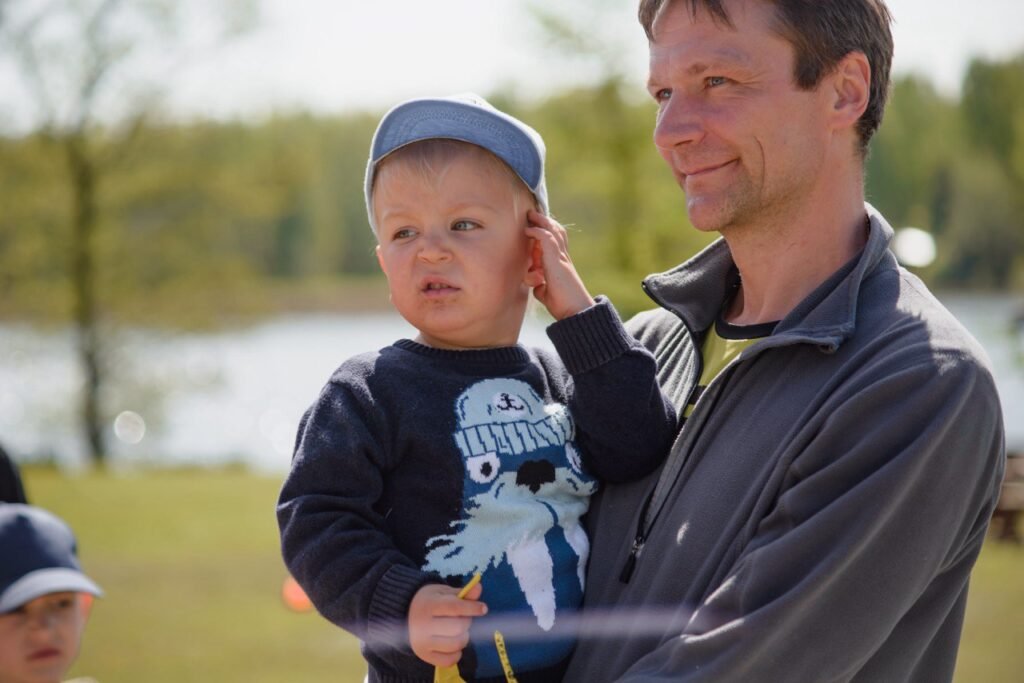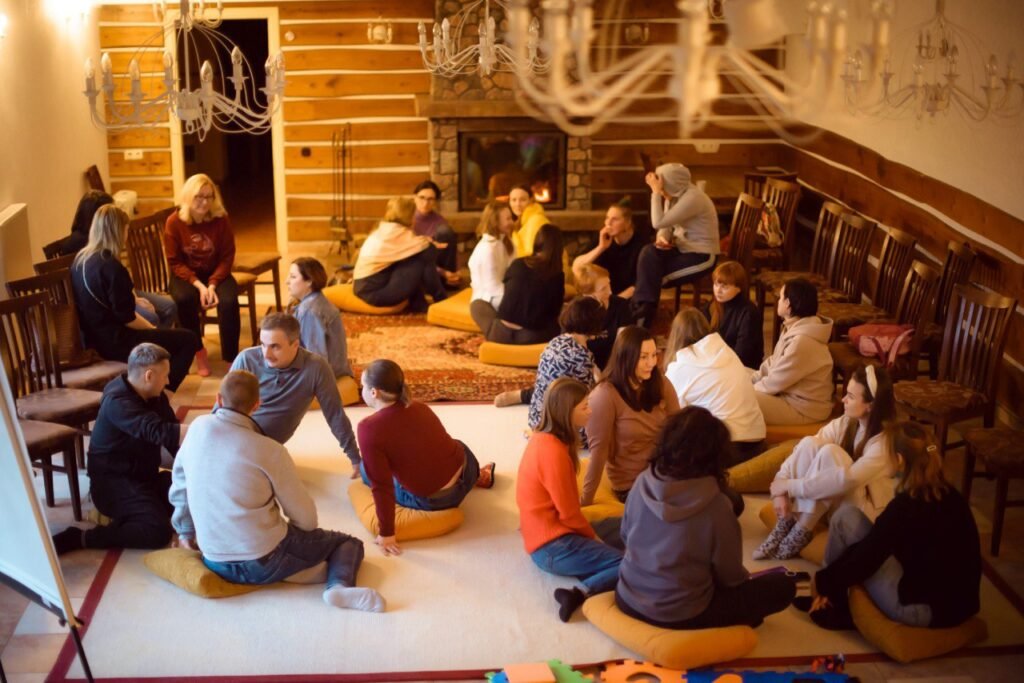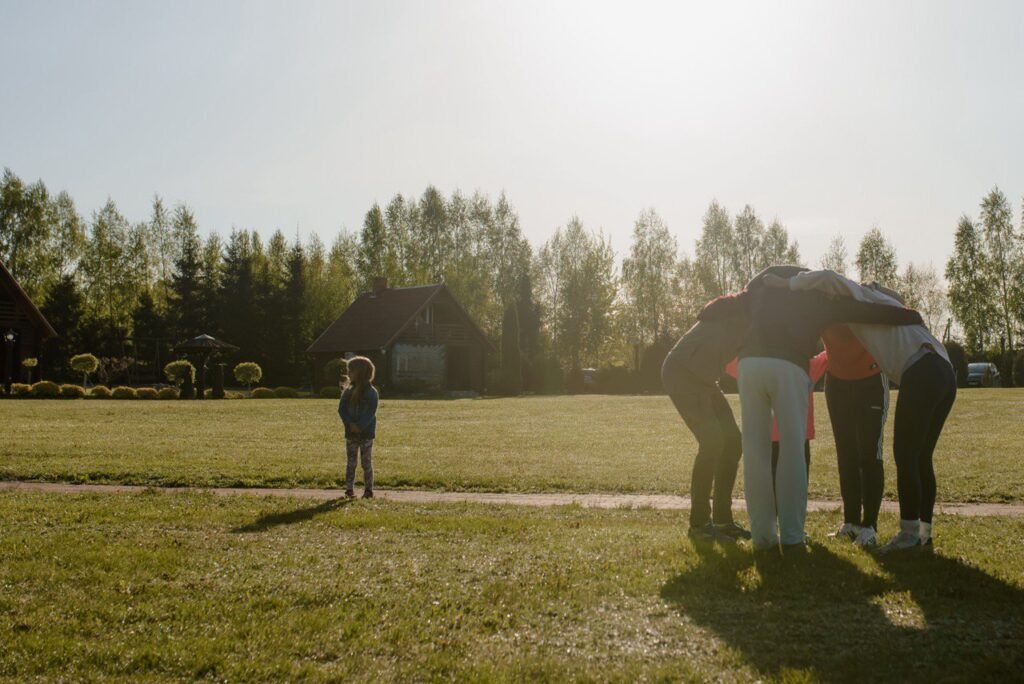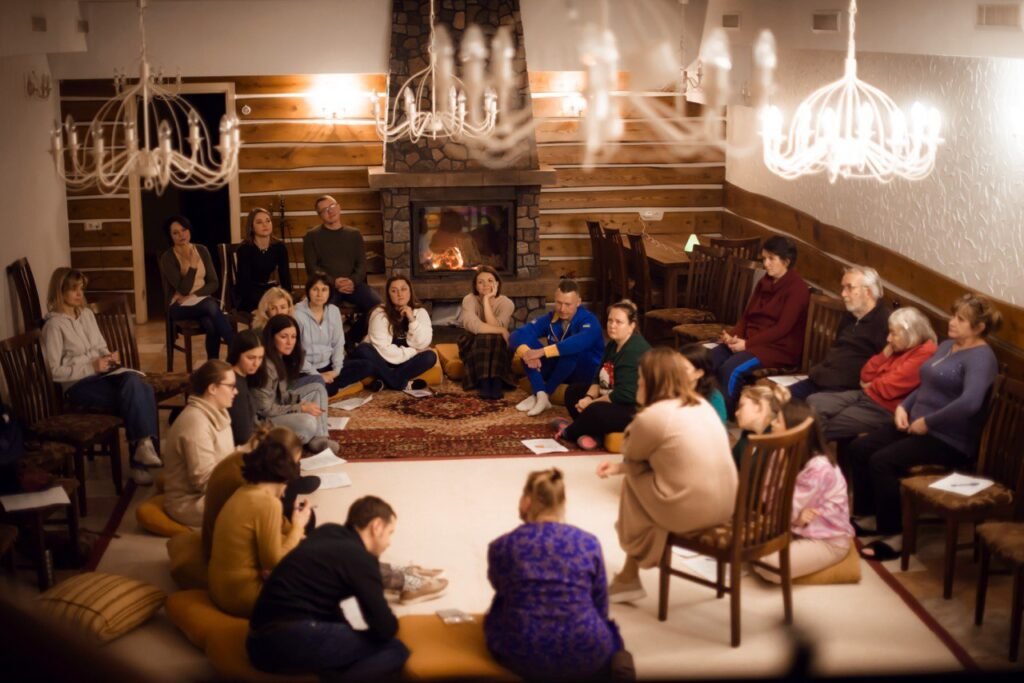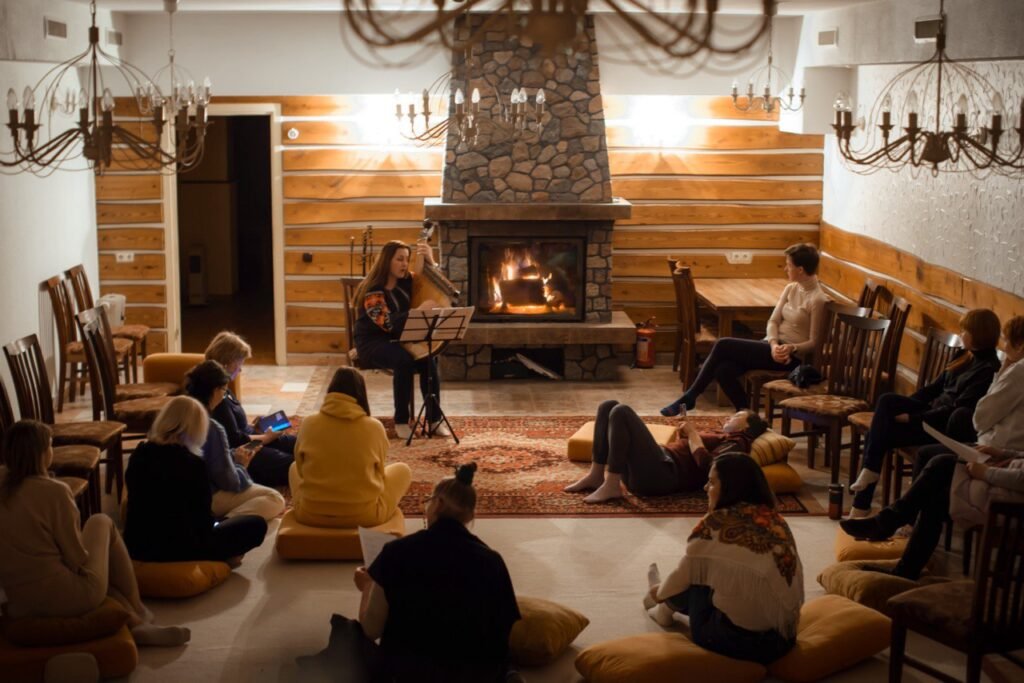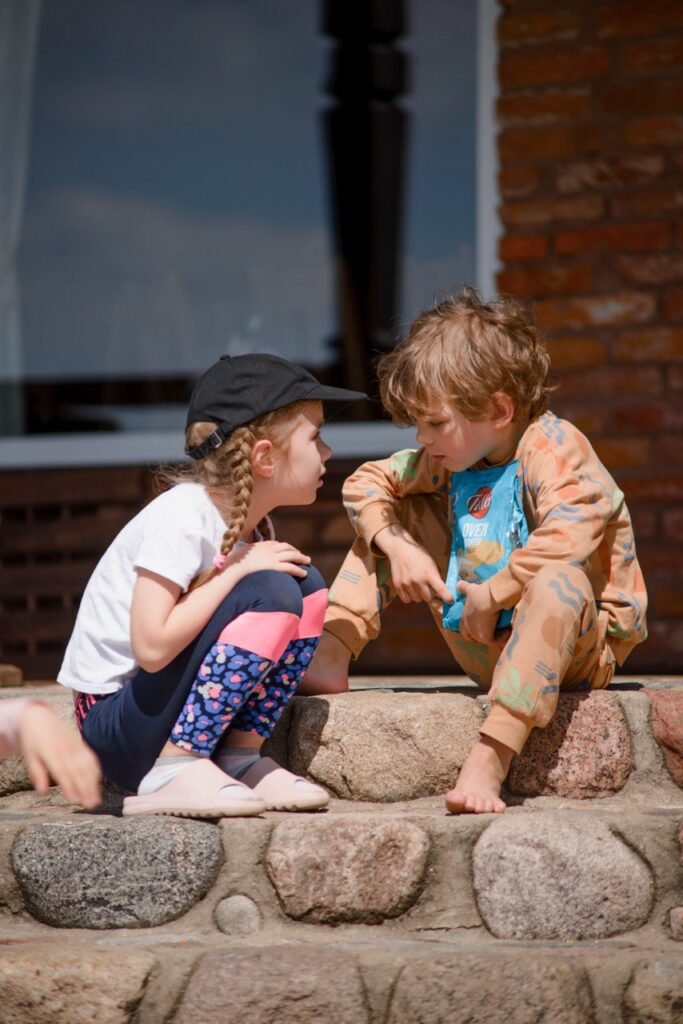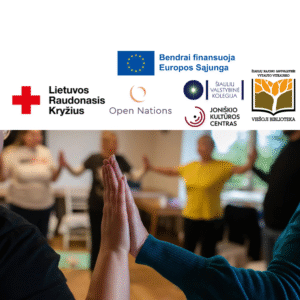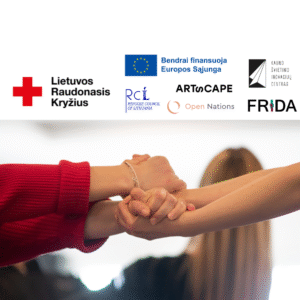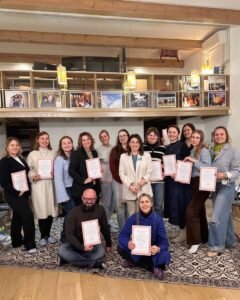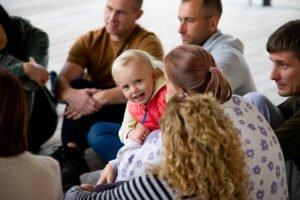Since the start of Russia’s full-scale invasion of Ukraine, our team has quickly developed and implemented over 20 family programs in 12 cities in Lithuania. These programs were a rapid and effective response to the challenges of war trauma, the stress of being in a new country, integration, cohesive living with the host community, parenting difficulties, and relationships on distance.
From 2022 to 2024, more than 2000 participants took part in our free programs. We have secured funding in three rounds from the European EE program and Norway Grants, totaling more than 600,000 euros.
Our programs usually take the form of a three-day family camp with various activities for all ages. Participants often represent three generations of the same family. Adults are combined into one group that includes young parents and other adult participants, while children are divided into three main groups: preschoolers (under 5 years old), schoolchildren (6-11 years old), and teenagers (12-18 years old).
The main goals of our family programs are:
1. Creating a safe and supportive environment for Ukrainian families in Lithuania:
– Restoring emotional strength to strengthen family ties (parenting, relationships between spouses, ties with parents and other relatives who remained in Ukraine).
– Establishing meaningful external relations with Lithuanian families.
– Mutual support to overcome the consequences of the war and adapt to the new reality.
2. Promoting community ties, cultural identity, and mutual exchange through creative activities, traditions, and language:
– Supporting the integration of Ukrainian families and youth in Lithuania and promoting the adoption of common values (dignity, freedom, democracy, equality, human rights).
– Creating a network of Ukrainian and Lithuanian families – “agents of change” – to strengthen these values in the restored Ukraine.
3. Psychological preparation of Ukrainian families and youth for returning to Ukraine after the war:
– Understanding the experience of war.
– Assisting in overcoming psychological difficulties related to the trauma of war and adaptation to new conditions.
Key features of the programs include the three-day TULA family camp for Lithuanian and Ukrainian families, which includes cultural exchange (folklore, traditions, food, crafts), art therapy (drawing, dancing, movement therapy), and meaningful discussions about human rights, war, loss, and hope. Additionally, lectures on education, empathy, relationships, and the past, present, and future are also held.
These programs not only help Ukrainian families heal from the trauma of war but also create a platform for integration and joint growth in a new environment, promoting mutual understanding and support between the communities of Ukraine and Lithuania.
